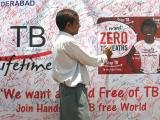Dec 21, 2005 (CIDRAP News) An outbreak of Escherichia coli O157:H7 cases in Washington state has sickened up to 18 people, most of them children, and triggered renewed warnings about drinking raw milk.
A report in the Portland Oregonian newspaper today said 18 people, including 15 children younger than 13, are believed to have been infected with E coli O157:H7 after drinking raw milk from Dee Creek Farm near Woodland, Wash.
The outbreak was first reported last week. In a Dec 15 news release, the Washington State Department of Health said five children had been hospitalized, three of them with possible kidney failure.
The Oregonian story said two hospitalized children were continuing to improve "after days in critical condition."
Preliminary tests by the Washington State Department of Agriculture revealed E coli O157:H7 in milk from the farm and from a customer's home, the Oregonian reported. Additional testing was needed to determine whether it is the same strain identified in 7 of the 18 patients and whether its DNA fingerprint matches that found in four of the confirmed cases, the story said.
Washington allows limited sales of raw milk, but only by producers and processors who have been inspected and licensed by the state, the health department release said. The milk involved in the cases did not come from a licensed raw-milk dairy, the statement said. The newspaper story said the state stopped the distribution of Dee Creek Farm's milk last week.
The outbreak triggered a new warning from the US Food and Drug Administration against drinking raw milk, given the risk of ingesting harmful bacteria. The FDA said more than 300 people in the United States got sick from drinking raw milk or eating cheese made from raw milk in 2001.
The FDA said pasteurization does not significantly change milk's nutritional value and is the only effective method for eliminating the bacteria in raw milk and milk products. Besides E coli infection, pasteurization of milk can prevent a number of other contagious diseases, such as tuberculosis, diphtheria, polio, Q fever, salmonellosis, strep throat, scarlet fever, and typhoid fever. Federal law requires pasteurization of all milk shipped between states, the agency said.
See also:
Dec 16 FDA statement
http://www.fda.gov/NewsEvents/Newsroom/PressAnnouncements/2005/ucm108535.htm

















